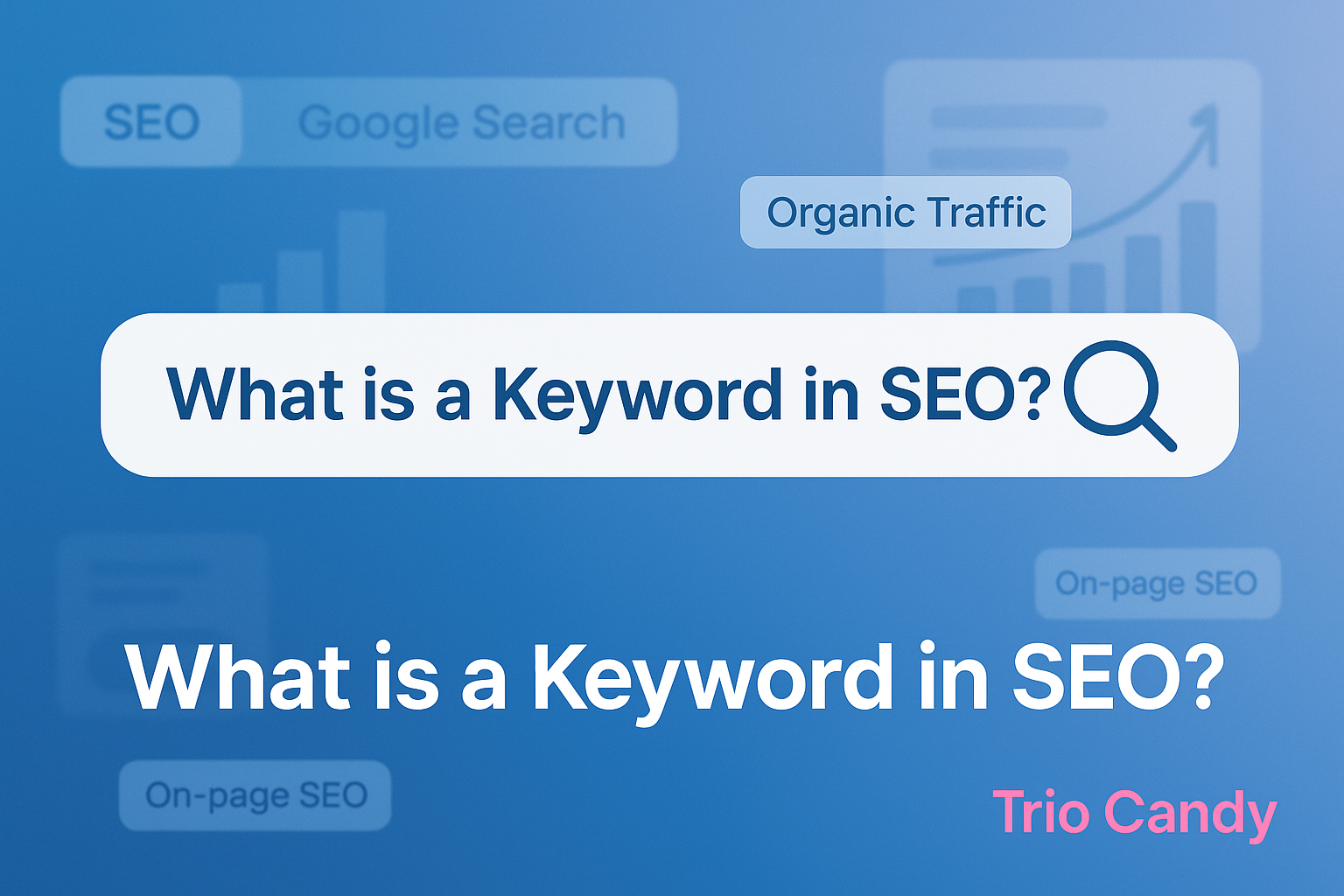If you’ve ever read anything about SEO (Search Engine Optimization), chances are you’ve heard the term “keyword” tossed around more than once. But what exactly is a keyword in SEO, and why is it so important?
Whether you’re running a blog, managing an e-commerce website, or growing a business online, understanding keywords is crucial to improving your visibility on search engines like Google. In this post, we’ll explain everything you need to know about keywords—from what they are to how they work and how to use them effectively.
What is a Keyword in SEO?
In simple terms, a keyword is a word or phrase that users type into a search engine to find content, products, or services.
In the context of SEO, a keyword is the target term or phrase that content creators and website owners optimize their web pages for, in hopes of ranking higher on search engine results pages (SERPs).
For example:
-
If someone searches for “best Indian grocery store in Berlin”, that entire phrase is considered a long-tail keyword.
-
A shorter version like “Indian grocery” is called a broad keyword or short-tail keyword.
Why Are Keywords Important in SEO?
Keywords are the bridge between what people are searching for and the content you’re offering to fill that need. Google’s search engine algorithms use keywords to determine what your page is about and decide whether it matches the user’s intent.
Here’s why keywords matter:
-
🔍 They help search engines understand your content.
-
📈 They drive organic traffic to your site.
-
🧭 They guide your content creation strategy.
-
💰 They attract potential customers looking for your services.
If you use the right keywords in the right places, your chances of ranking higher in search results increase significantly—meaning more visibility, traffic, and leads.
Types of Keywords in SEO
Let’s break down the common types of keywords you’ll come across in SEO:
1. Short-Tail Keywords
-
Usually 1–2 words long.
-
Broad and competitive.
-
Example: “shoes”, “fitness”, “SEO”.
2. Long-Tail Keywords
-
Longer phrases (3 or more words).
-
More specific and easier to rank for.
-
Example: “best running shoes for flat feet” or “SEO tips for small businesses”.
3. Informational Keywords
-
Users are seeking knowledge or answers.
-
Example: “how to cook biryani”, “what is digital marketing”.
4. Transactional/Commercial Keywords
-
Show buyer intent; used when a person is ready to act.
-
Example: “buy organic tea online”, “best laptop under 50k”.
5. Navigational Keywords
-
Users want to go to a specific site.
-
Example: “Facebook login”, “Nike store”.
How to Find the Right Keywords
Finding the right keywords is part of the keyword research process, which helps you understand what your audience is searching for and how competitive those terms are.
Some tools you can use:
-
Google Keyword Planner (free)
-
Ubersuggest
-
Semrush
-
Ahrefs
-
AnswerThePublic
When choosing keywords, look for:
-
High search volume
-
Low to medium competition (for easier rankings)
-
Relevance to your business
-
Clear user intent (informational or transactional)
How to Use Keywords in Your Content
Once you’ve found the right keywords, it’s time to strategically place them in your content. Here’s where you should include them:
-
Page title and meta description
-
Headings (H1, H2, etc.)
-
First 100 words of content
-
URL (slug)
-
Image alt tags
-
Anchor text for internal links
-
Naturally throughout the content
⚠️ Avoid keyword stuffing—repeating the same keyword too often makes your content unreadable and can even harm your rankings.
Keyword Example in Action
Let’s say you’re running a blog on vegan cooking. One of your keywords is “easy vegan dinner recipes.” You could write a blog post titled:
10 Easy Vegan Dinner Recipes for Busy Weeknights
This title includes your target keyword naturally, and your content should revolve around that topic, giving readers exactly what they came for—and helping Google understand your relevance.
Conclusion
Keywords are the foundation of SEO. They’re what connect your content to your target audience and help your website become visible on search engines. Choosing the right keywords and using them effectively is a core skill for anyone involved in digital marketing, content creation, or website optimization.
Whether you’re a small business owner, blogger, or marketer, start by understanding what your audience is searching for—and let that guide your keyword and content strategy.

